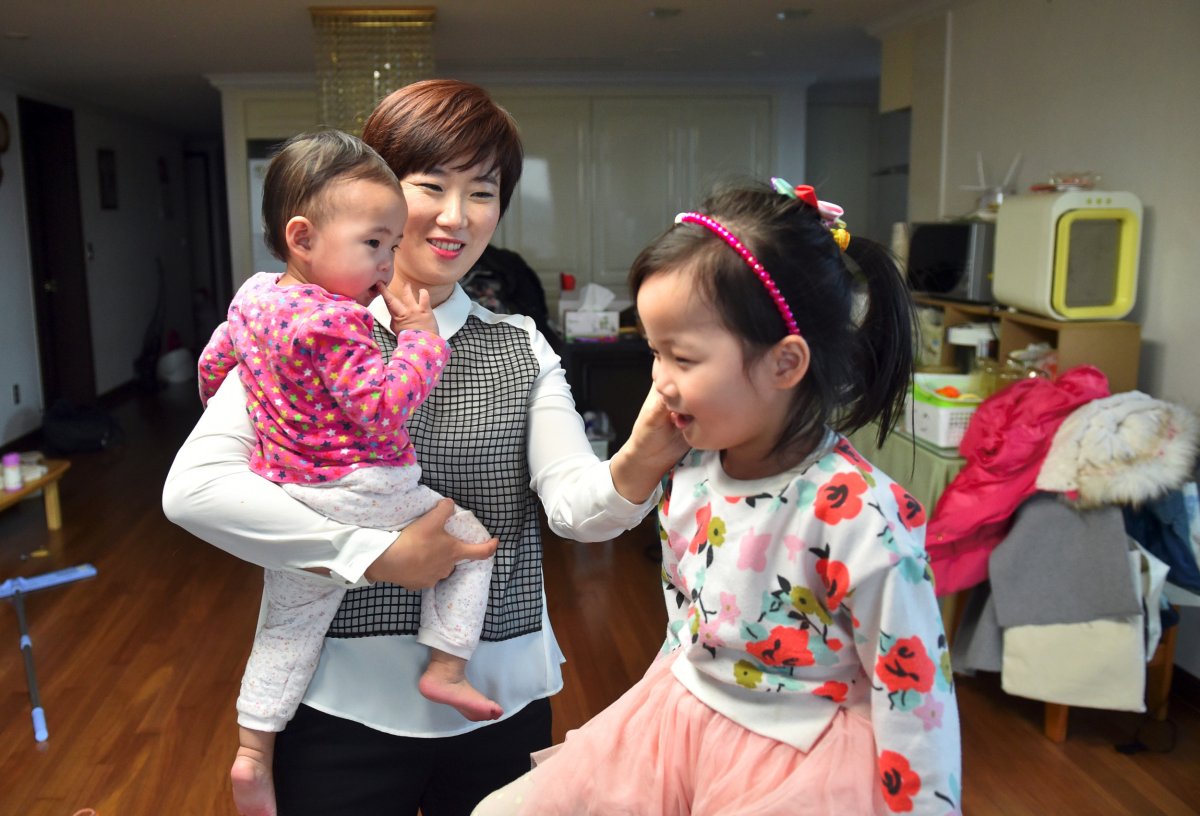South Korea's fertility rate, already the lowest globally, continued its dramatic decline in 2023, according to Statistics Korea.
The average number of expected babies per South Korean woman during her reproductive life plummeted to a record low of 0.72 last year, from 0.78 in 2022, according to the government agency.
In South Korea, a societal shift has seen a rise in young adults living alone and an increase in unmarried people, particularly among men. This trend underscores the challenges facing South Korea as it grapples with the implications of its declining fertility rate on its future economic competitiveness and societal structure.
The decline underlines the population crisis threatening economic growth and the social welfare system in Asia's fourth-largest economy.
"Women typically can't build on their experience to climb higher at workplaces because they are often...the only one doing the childcare (and) often need to rejoin the workforce after extended leaves," said Jung Jae-hoon, a professor at Seoul Women's University in a report by Reuters on the statistics released on Wednesday.
With a population of 51 million, projections suggest a halving by the century's end if current trends persist. The fertility rate of 0.78 babies per 1,000 women in 2022 is significantly below the 2.1 children per woman replacement rate needed to maintain a stable population, as estimated by the U.S. National Institutes of Health.
The situation has deteriorated from 2015, when the fertility rate was a comparatively healthier 1.24, amid lower concerns about housing and education costs.
"There are people who don't get married but we think about why married couples choose not to have babies, and my understanding is that addressing that part is going to be the focus of our policies [to boost the birth rate]," a Statistics Korea official told a briefing.
Government efforts to address this trend, including $1,500 bonuses for childbirth and additional monthly payments based on the children's ages, have yet to reverse the declining birth rates.
Since 2018, South Korea has been the only member of the Organisation for Economic Co-operation and Development (OECD) with a fertility rate below 1, despite billions of dollars spent in attempts to bolster population growth.
The nation has witnessed a population decline for four consecutive years as of 2023.
"Having a baby is on my list, but there's windows for promotions, and I don't want to be passed over," Gwak Tae-hee, a 34-year-old junior manager who has been married for three years, told Reuters.
The challenges of balancing career advancement with childcare predominantly fall on women, often resulting in extended career breaks and hindering professional progression.

The demographic shift is not only affecting the labor market but also the social fabric of South Korea. Young adults aged 19 to 34, who constituted almost a third of the population in 1990, have dwindled to a mere fifth of the total population by 2020, Newsweek reported.
This group is projected to further decrease to 5.21 million by 2050. Meanwhile, individuals aged 65 and above are increasing in proportion, set to outnumber young adults by the decade's end.
Uncommon Knowledge
Newsweek is committed to challenging conventional wisdom and finding connections in the search for common ground.
Newsweek is committed to challenging conventional wisdom and finding connections in the search for common ground.
About the writer
Aadil Brar is a reporter for Newsweek based in Taipei, Taiwan. He covers international security, U.S.-China relations, and East Asian ... Read more
To read how Newsweek uses AI as a newsroom tool, Click here.








